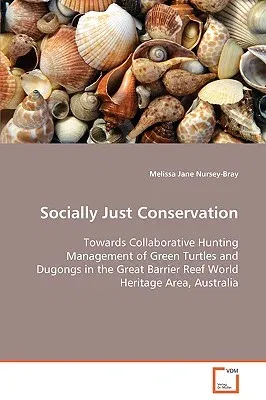Melissa Jane Nursey-Bray
(Author)Socially Just Conservation Towards Collaborative Hunting Management of Green Turtles and Dugongs in the Great Barrier Reef World Heritage Area, AustraPaperback, 6 October 2008

Qty
1
Turbo
Ships in 2 - 3 days
In Stock
Free Delivery
Cash on Delivery
15 Days
Free Returns
Secure Checkout
Print Length
348 pages
Language
English
Publisher
VDM Verlag
Date Published
6 Oct 2008
ISBN-10
383649440X
ISBN-13
9783836494403
Description
Product Details
Author:
Book Format:
Paperback
Country of Origin:
US
Date Published:
6 October 2008
Dimensions:
22.86 x
15.24 x
1.83 cm
Genre:
Ecology
ISBN-10:
383649440X
ISBN-13:
9783836494403
Language:
English
Location:
Saarbrucken
Pages:
348
Publisher:
Weight:
467.2 gm

